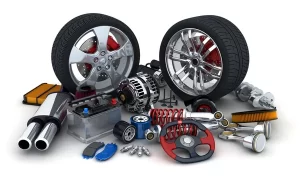You will feel more satisfied and at peace if you know how to thoroughly clean your car’s...
Finding the best way to wash your car is an endless quest. There are many car wash...
Streamline Auto Solutions: Pick and Pull Parts Yards, Quality Discount Auto Parts Streamline Auto Solutions has been...
Brake callipers have a huge role in the operation of a vehicle’s braking system. These components are...
All of these terms refer to professionals who are trained to maintain and repair various types of...
Your car’s wheels play a role in ensuring your safety while driving. Not only do they keep...
A stretch of lush green tall trees balancing an elegant blue horizon covered by mountains, canyons and...
If you’re ready to market your old car There are two options either sell it to a...
Who wouldn’t want to be having a chauffeur driven around in a classy vehicle! It immediately gives...
Hummer hire isn’t restricted to prom evenings. These elegant vehicles can be used to make an appearance...
Scrap car removal is an issue when done correctly, but when you take the proper approach it...
1. Find a mechanic for your vehicle make. You want to find a mechanic who is familiar...
The Syrian refugee crisis remains one of the most pressing humanitarian issues of our time. As conflict...
In today’s world, the idea of traveling without passports or visas seems almost unthinkable. These small booklets,...
In recent years, reports of mysterious health ailments afflicting US diplomats stationed in Havana, Cuba, have garnered...
In the serene landscapes of exotic destinations and bustling cityscapes, there exists a dark underbelly that often...
In an age where the world has become more interconnected than ever before, travel has become an...
The Canadian airline industry has long been a dynamic and competitive market, with major carriers and smaller...
In an era marked by globalization and technological advancement, one might expect humanity to be progressing toward...
In the complex ecosystem of air travel, passengers often find themselves grappling with a multitude of fees,...
For many, a holiday in Turkey conjures images of pristine beaches, ancient ruins, and bustling bazaars. However,...



































